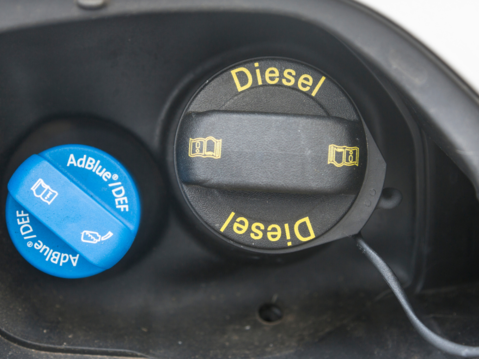Everything you need to know about AdBlue
What Does AdBlue Do?
If you drive a diesel car, you may well be familiar with AdBlue, a solution used by modern diesel engines that helps them reach Euro 6 emissions standards. The AdBlue product is pretty vital if you’re in our neck of the woods of Uxbridge in Greater London. Our area is now part of the Ultra Low Emission Zone (ULEZ) which expanded its reach across the city in August 2023. If you are still confused about what AdBlue does and why it is important, then our handy guide on the topic will explain things clearer. Read on to find out more.
What is AdBlue?
AdBlue is a brand name that refers to a non-toxic, biodegradable, non-flammable liquid made up of urea and water that, paired with a Selective Catalytic Reduction (SCR) system found in many modern diesel cars, removes those nasty nitrogen-oxide emissions.
How does AdBlue work?
On cars with an SCR system, AdBlue is injected into a modified part of the exhaust, causing a chemical reaction that neutralises most of the nitrogen oxide into nitrogen and oxygen, which are harmless enough to be released into the atmosphere via an exhaust pipe.
It’s important to note that AdBlue doesn’t eliminate nitrogen oxide completely, but it does do a lot of the hard work, reducing emissions considerably. It means that diesel engines can still be environmentally safe to drive, whereas they’d otherwise be too harmful to consider.
How often do I need to top up my AdBlue?
The exact amount of time and miles between AdBlue top-ups will depend on what vehicle you drive, how you drive it, and the weight of the vehicle at any given time. However, generally, you’ll get at least a couple of thousand miles out of an AdBlue reservoir that’s filled to the top — usually more for most motorists.
Can you drive a vehicle without AdBlue?
If your vehicle is fitted with an SCR system, you won’t be able to drive without AdBlue, and you should never let it get to the point where you’re completely out. To make the most of a small amount of AdBlue left in the tank, your car will go into ‘limp mode’, which means a significant loss of power to reduce the AdBlue needed to keep nitrogen oxide levels at a safe amount.
Beyond that, the engine is unlikely to start once it’s been turned off without any AdBlue in the tank, so it’s vital not to let it get low, heading to a garage ASAP if it does.
How will I know to top up my AdBlue?
Don’t worry, your car will give you ample notice that the AdBlue requires your attention, usually around 1,000 miles before it actually runs out. It will then remind you regularly, if not constantly, via the control panel behind the steering wheel.
Can I top up my AdBlue myself?
Many cars allow you to fill up your AdBlue yourself, though some don’t. You can find out if your car is one where you can top up your own AdBlue by taking a look at the fuel filling flap — alongside the flap for fuel, there’ll be a second for AdBlue — it should be blue, which is handy to remember!
If you’re able to take a DIY approach to your AdBlue, it’s vital you pay attention — it’s not good news if you put AdBlue in the fuel tank! It’ll be a full drain down if this happens, which is a costly outcome for a mistake that only takes a few seconds.
If your car takes AdBlue but doesn’t have a dedicated flap for you to top it up with, it’s something that a professional will be able to access, and this will usually be attended to at your car’s annual service. Any interim top-ups can be done for an additional fee.



